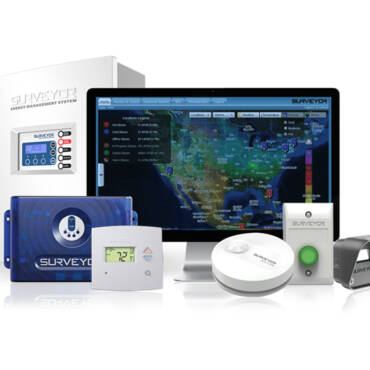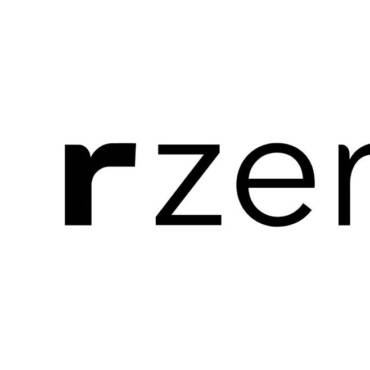As a homeowner in Jacksonville Beach, FL, you know how vital your HVAC system is to maintaining a comfortable living environment, especially with the region’s year-round warm climate. Air conditioners and heat pumps are your best friends in managing the heat and humidity that make coastal living so unique. But did you know that major changes are coming to the refrigerants used in these systems?
These changes are not just industry jargon—they will impact the way your HVAC system operates, the costs associated with maintaining it, and even the environmental footprint of your home. In this blog post, we’ll break down what these refrigerant changes mean for you, why they matter, and how you can navigate them with ease.
What Are Refrigerants, and Why Do They Matter?
Before diving into the specifics of the 2025 refrigerant changes, let’s first take a moment to understand what refrigerants are and why they matter in the context of your HVAC system.
In simple terms, refrigerants are substances used in your air conditioning or heating system to absorb and release heat. These chemicals are responsible for cooling the air inside your home, and they play a critical role in the efficiency of your HVAC unit.
Over the years, the industry has moved through different types of refrigerants—each with its own set of benefits and drawbacks. The most commonly used refrigerants in the past, such as R-22, were phased out due to their harmful effects on the ozone layer. Today, newer refrigerants like R-410A are more environmentally friendly, but even these are now being replaced due to global efforts to reduce greenhouse gas emissions.
This is where the 2025 refrigerant changes come into play.
Understanding the 2025 Refrigerant Changes
In an effort to combat climate change, the Environmental Protection Agency (EPA) is pushing for a reduction in the use of high-global-warming-potential (GWP) refrigerants. By 2025, the EPA will be enforcing stricter regulations on refrigerants used in residential and commercial HVAC systems.
One of the key changes will involve phasing out R-410A, which has been the standard refrigerant for many years. While R-410A is a significant improvement over older refrigerants like R-22, it still has a relatively high GWP, contributing to global warming when it leaks into the atmosphere. In response, new refrigerants with lower GWPs are being introduced to replace R-410A.
For homeowners in Jacksonville Beach, this means that your current HVAC system may need to be retrofitted or replaced to accommodate these new refrigerants. Let’s explore what this means for your home.
What Does This Mean for Jacksonville Beach Homeowners?
If you’re wondering how these refrigerant changes will affect you specifically as a Jacksonville Beach homeowner, here’s a breakdown of what to expect:
1. Impact on Your Existing HVAC System
If you currently have an HVAC system that uses R-410A, you may be wondering if your unit will still function after 2025. The good news is that your system will continue to operate, but the availability of R-410A refrigerant will gradually decrease. This could result in higher prices for refrigerant as the supply becomes more limited.
In the worst-case scenario, if your system develops a refrigerant leak or requires a major repair, it may not be possible to recharge your system with R-410A. In such cases, your HVAC technician would need to retrofit your system to be compatible with the new refrigerant or, in some cases, replace your entire unit.
2. Choosing a New HVAC System
For homeowners looking to replace their aging HVAC systems, 2025 presents a great opportunity to upgrade to a more environmentally friendly and energy-efficient model. New systems will be designed to work with low-GWP refrigerants like R-32, a newer alternative that’s becoming increasingly popular in the HVAC industry.
R-32 refrigerant has several advantages over its predecessors:
- Lower GWP: R-32 has a significantly lower GWP than R-410A, which means it contributes much less to global warming.
- Better Efficiency: R-32 systems tend to be more energy-efficient, potentially saving you money on your utility bills.
- Environmental Impact: Since R-32 breaks down more easily in the atmosphere, it poses less of a threat to the environment if it is accidentally released.
3. Retrofitting Your Existing System
For those not ready to replace their entire HVAC unit, retrofitting is another option. Retrofitting involves modifying your current system to accommodate a new refrigerant. While this can be a more affordable solution compared to a full replacement, it’s important to consult with a licensed HVAC technician to determine if your system is compatible with retrofit options.
4. Cost Considerations
There’s no getting around it: HVAC replacements and retrofitting can come with a cost. However, there are financial incentives to consider:
- Energy Savings: Newer systems with low-GWP refrigerants are generally more energy-efficient, which could help reduce your monthly utility bills.
- Rebates and Tax Incentives: Many manufacturers and utility companies offer rebates for installing energy-efficient systems, so be sure to ask your HVAC technician about available incentives.
It’s also worth noting that while initial costs may be higher, the long-term savings from reduced energy consumption and lower refrigerant prices can offset these costs over time.
How to Prepare for the 2025 Refrigerant Changes
As the 2025 refrigerant regulations come closer, here are some steps you can take to ensure a smooth transition for your home:
1. Schedule an HVAC Inspection
If your system is still running on R-410A, it’s a good idea to schedule a professional inspection to ensure that your system is functioning optimally. Regular maintenance can help identify potential issues before they become expensive problems.
2. Plan for Future Replacement
If your HVAC system is nearing the end of its lifespan, it may be worth planning ahead for a replacement. Upgrading now will not only prepare you for the refrigerant changes but will also ensure that you have a more energy-efficient and environmentally friendly system moving forward.
3. Consult with a Professional HVAC Technician
The refrigerant changes can be complex, but you don’t have to navigate them alone. Reach out to a licensed HVAC professional, like the experts at Charlie’s Tropic Heating & Air, to discuss your options. Whether you need a simple retrofit or a full system replacement, our team can guide you through the process and help you make an informed decision.
For HVAC Services in Jacksonville Beach, FL, Contact Charlie’s Tropic Heating & Air Today
At Charlie’s Tropic Heating & Air, we understand the importance of staying ahead of changes in the HVAC industry, and we’re here to help you navigate the 2025 refrigerant changes with ease. Whether you need an inspection, retrofit, or full replacement of your HVAC system, our team is committed to providing reliable, affordable, and professional services to homeowners in Jacksonville Beach, FL.
Don’t wait for refrigerant prices to rise or for a major issue to arise—contact us today to schedule your consultation and ensure your home stays comfortable, energy-efficient, and eco-friendly for years to come.
Whether you require installation, repair, or maintenance, our technicians will assist you with top-quality service at any time of the day or night. Take comfort in knowing your indoor air quality is the best it can be with MOE heating & cooling services Ontario's solution for heating, air conditioning, and ventilation that’s cooler than the rest.
Contact us to schedule a visit. Our qualified team of technicians, are always ready to help you and guide you for heating and cooling issues. Weather you want to replace an old furnace or install a brand new air conditioner, we are here to help you. Our main office is at Kitchener but we can service most of Ontario's cities
Source link



